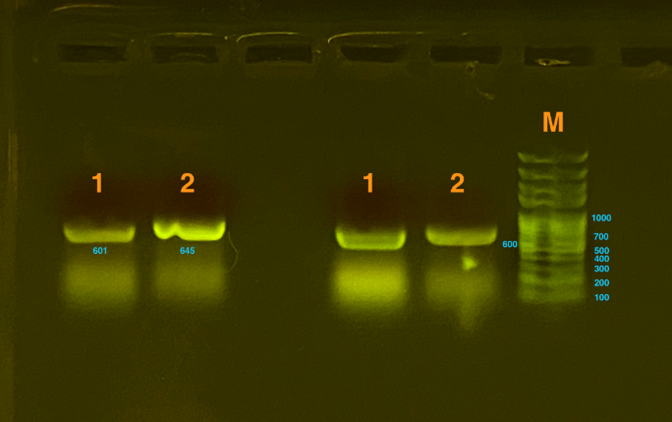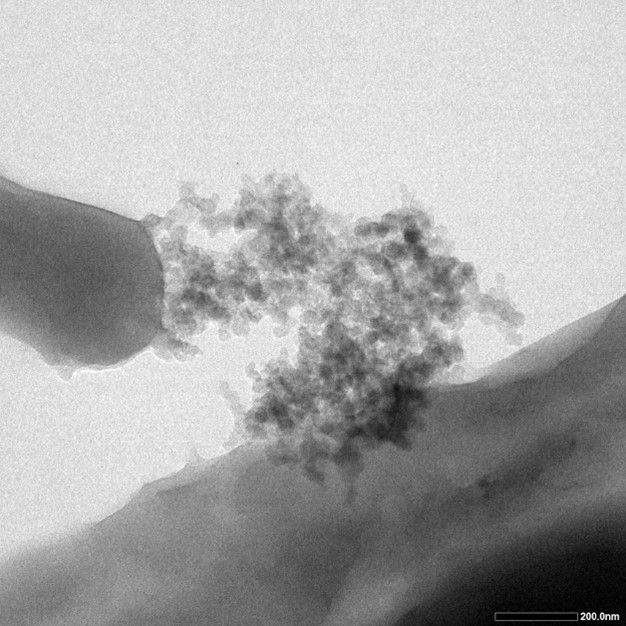Difference between revisions of "Part:BBa K4090000"
| Line 23: | Line 23: | ||
==References== | ==References== | ||
| − | [1]ZHU T, PAULO C, MERROUN, M L, et al. Potential application of biomineralization by Synechococcus PCC8806 for concrete restoration[J]. Sedimentology, 2013, 61(1): 1-21<br> | + | [1] ZHU T, PAULO C, MERROUN, M L, et al. Potential application of biomineralization by Synechococcus PCC8806 for concrete restoration[J]. Sedimentology, 2013, 61(1): 1-21.<br> |
| − | [2]Lechner, Carolin C., and Christian FW Becker. "A sequence‐function analysis of the silica precipitating silaffin R5 peptide." Journal of Peptide Science 20.2 (2014): 152-158.<br> | + | [2] Lechner, Carolin C., and Christian FW Becker. "A sequence‐function analysis of the silica precipitating silaffin R5 peptide." Journal of Peptide Science 20.2 (2014): 152-158.<br> |
| − | [3]Poulsen, Nicole, and Nils Kroger. "Silica morphogenesis by alternative processing of silaffins in the diatom Thalassiosira pseudonana." Journal of Biological Chemistry 279.41 (2004): 42993-42999. | + | [3] Poulsen, Nicole, and Nils Kroger. "Silica morphogenesis by alternative processing of silaffins in the diatom Thalassiosira pseudonana." Journal of Biological Chemistry 279.41 (2004): 42993-42999. |
<!-- Uncomment this to enable Functional Parameter display | <!-- Uncomment this to enable Functional Parameter display | ||
Revision as of 11:01, 17 October 2021
Ice Nucleation Protein(INP)
ice nucleation protein(INP) is a kind of transmembrane protein, which can help proteins to play their role outside the membrane.
Data
According to Fig.1-1, all the fragments designed have been successfully made, including S1&S2, which are Silicatein combined with INP, and P1&P2, which are S010_pET28b-csgA-linker-mfp5-7His(pET).
Fig.1-2 represents the results of gel electrophoresis to test the fragment after Gibson Assembly. The length is about 600bp, which, together with the results from sequencing, indicates a positive outcome.
Fig.1-3 represents qualitative OD values, showing that there is sufficient amount of silicatein produced, since: •Both NC Control are darker (NC1 remain as yellow which indicates that it needs MORE NaOH to turn blue, it contains more acids). •Both silicatein mixture (with / without homogenization) have higher OD810nm, meaning that there are more bacteria inside the test tube (the solution is thicker / not as clear as NCs).
Fig.1-4 shows the results from TEM testing. Dark proportions represent silicon dioxide produced on the surface of cells.
- 10COMPATIBLE WITH RFC[10]
- 12COMPATIBLE WITH RFC[12]
- 21INCOMPATIBLE WITH RFC[21]Illegal BamHI site found at 321
- 23COMPATIBLE WITH RFC[23]
- 25INCOMPATIBLE WITH RFC[25]Illegal NgoMIV site found at 63
Illegal NgoMIV site found at 396
Illegal AgeI site found at 498 - 1000INCOMPATIBLE WITH RFC[1000]Illegal SapI.rc site found at 229
References
[1] ZHU T, PAULO C, MERROUN, M L, et al. Potential application of biomineralization by Synechococcus PCC8806 for concrete restoration[J]. Sedimentology, 2013, 61(1): 1-21.
[2] Lechner, Carolin C., and Christian FW Becker. "A sequence‐function analysis of the silica precipitating silaffin R5 peptide." Journal of Peptide Science 20.2 (2014): 152-158.
[3] Poulsen, Nicole, and Nils Kroger. "Silica morphogenesis by alternative processing of silaffins in the diatom Thalassiosira pseudonana." Journal of Biological Chemistry 279.41 (2004): 42993-42999.





